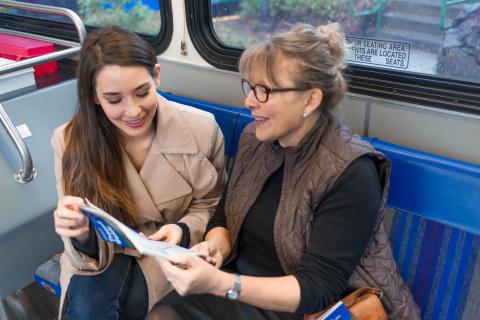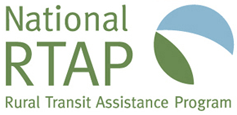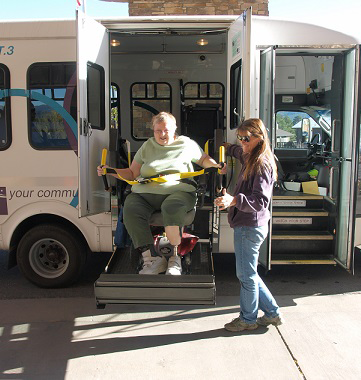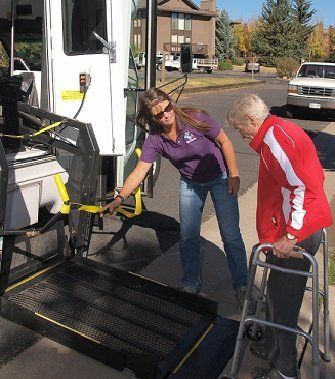NASET.org Home Page
Exceptional teachers teaching exceptional children.
- Overview of NASET
- NASET Leadership
- Directors' Message
- Books by the Executive Directors
- Mission Statement
- NASET Apps for iPhone and iPad
- NASET Store
- NASET Sponsors
- Marketing Opportunities
- Contact NASET
- Renew Your Membership
- Membership Benefits
- Frequently Asked Questions
- Membership Categories
- School / District Membership Information
- Gift Membership
- Membership Benefit for Professors Only
- NASET's Privacy Policy
- Forgot Your User Name or Password?
- Contact Membership Department
- Resources for Special Education Teachers
- Advocacy (Board Certification for Advocacy in Special Education) BCASE
- Board Certification in Special Education
- Inclusion - Board Certification in Inclusion in Special Education (BCISE) Program
- Paraprofessional Skills Preparation Program - PSPP
- Professional Development Program (PDP) Free to NASET Members
- Courses - Professional Development Courses (Free With Membership)
- Forms, Tables, Checklists, and Procedures for Special Education Teachers
- Video and Power Point Library
- IEP Development
- Exceptional Students and Disability Information
- Special Education and the Law
- Transition Services
- Literacy - Teaching Literacy in English to K-5 English Learners
- Facebook - Special Education Teacher Group
- NASET Sponsor's Products and Services
- ADHD Series
- Assessment in Special Education Series
- Autism Spectrum Disorders Series
- Back to School - Special Review
- Bullying of Children
- Classroom Management Series
- Diagnosis of Students with Disabilities and Disorders Series
- Treatment of Disabilities and Disorders for Students Receiving Special Education and Related Services
- Discipline of Students in Special Education Series
- Early Intervention Series
- Genetics in Special Education Series
- How To Series
- Inclusion Series
- IEP Components
- JAASEP - Research Based Journal in Special Education
- Lesser Known Disorders
- NASET NEWS ALERTS
- NASET Q & A Corner
- Parent Teacher Conference Handouts
- The Practical Teacher
- Resolving Disputes with Parents Series
- RTI Roundtable
- Severe Disabilities Series
- Special Educator e-Journal - Latest and Archived Issues
- Week in Review
- Working with Paraprofessionals in Your School
- Author Guidelines for Submission of Manuscripts & Articles to NASET
- SCHOOLS of EXCELLENCE
- Exceptional Charter School in Special Education
- Outstanding Special Education Teacher Award
- Board Certification Programs
- Employers - Job Posting Information
- Latest Job Listings
- Professional Development Program (PDP)
- Employers-Post a Job on NASET
- PDP - Professional Development Courses
- Board Certification in Classroom Management (BCCM)
- Board Certification in Special Education (BCSE)
- Board Certification in IEP Development (BCIEP)
- NASET Continuing Education/Professional Development Courses
- HONOR SOCIETY - Omega Gamma Chi
- Other Resources for Special Education Teaching Positions
- Highly Qualified Teachers
- Special Education Career Advice
- Special Education Career Fact Sheets
- FAQs for Special Education Teachers
- Special Education Teacher Salaries by State
- State Licensure for Special Education Teachers
- Travel Training
This area of Transition Services looks at training people with disabilities to use public transportation safely and independently.
It answers such questions as: What are the essential components of a successful travel training program? What specific skills do travelers need? What issues arise with specific disabilities such as physical, cognitive, or visual impairments.
Transportation provides us all with access to the wider opportunities of society employment, postsecondary education, job training programs, recreation. Traveling by car, by cab, or by public transportation systems such as bus and subway enables us to go to work and come home, go to school or other training programs, visit friends, take care of daily needs such as grocery shopping, and enjoy recreational activities.
Yet, many individuals with disabilities have traditionally been isolated from these societal opportunities, because they lacked a means of transportation. For many, driving a car was not possible, due to a visual, physical, or cognitive disability. Public transportation systems were often inaccessible due to structural barriers. Still other individuals were unable to use the transportation systems that were available, because they lacked the training, or "know-how," to use these systems safely.
Today, the lack of access to transportation that many individuals with disabilities have experienced is changing. Recently enacted federal legislation clearly intends to ensure that people with disabilities have an equal opportunity to participate independently and successfully in society. The Americans with Disabilities Act (ADA) recognizes the critical role that public transportation plays in the lives of many people and mandates that public transportation systems become accessible to people with disabilities. It also mandates that paratransit services are available and accessible to individuals who are unable to use public transportation.
Unfortunately, availability of transportation is not the only impediment to independent travel for people with disabilities. They must also know what systems of transport are available, how to access these, how to plan their travel, and how to execute their travel plans safely. For many individuals, learning how to travel on public transportation requires systematic training. Travel training, then, is often a crucial element in empowering people with disabilities to use the newly accessible transportation systems in our country.
To this end, the Individuals with Disabilities Education Act (IDEA) can be of particular importance. The IDEA requires public schools to provide what are known as "transition services" to youth with disabilities, to prepare them for the transition from school to adult life. While accessible transportation and transportation training are not specifically mentioned within IDEA, clearly the ability to use available transportation systems may be critical to a student's transition into the adult world. Thus, both the ADA and the IDEA provide individuals with disabilities, their families, school systems, service providers, community agencies, and transit systems with compelling incentives to work together to ensure that individuals with disabilities learn how to use accessible transportation.
The focus of this section will be to discuss transportation concerns of students and adults with disabilities. After reading this section, you should understand the following:
- Skills required for traveling independently
- Beginning Travel Training
- The process of travel training
- The necessity of travel training programs
- Who benefits from travel training programs?
- The Importance of Equal Access to Transportation
- Where to Look for Travel Training Programs
- Travel Training Guidelines for People with a Cognitive Disability
- Travel Training Guidelines for People with a Physical Disability
- What to Look For in a Travel Training Program
- Teaching Travel Skills to Persons who are Blind or Visually Impaired
- Evaluating the quality of programs that teach travel skills
- Public Transportation and the ADA
To read much more on this topic, as well as other topics pertaining to transition services in special education, log in to NASET now.
If you are not a member of NASET , and would like to join NASET , click on the following link; Join NASET to register.
Members of NASET , please log in above (member login and password) to activate these, and all other websites, in our database.
- Overview of Transition Services
- Types of Services Covered under Transition Services
- Transition Planning: A Team Effort
- Disability Population Receiving Transition Services
- Transition Services on the IEP
- Self Determination
- Record Keeping During the Transition Service Phase
- Vocational Assessments
- Employment Planning
- Social and Sexual Issues During Transition
- Recreation and Leisure Activities
- Assistive Technology
- Residential Placement Options
- Post Secondary Education
- Financial and Health Insurance Issues
- Legal Issues in the Transition Phase
- Tables, Charts, Statistics, and Other Important Links
- Independent Living Connections
©2024 National Association of Special Education Teachers. All rights reserved

7 Best Online Travel Agent Training Programs

Get information on Travel Agent Training programs by entering your zip code and request enrollment information.
With online studies, your career as a travel agent starts with a laptop, access to the internet, and a click.
If you spend hours daydreaming about the perfect vacation and love being a part of every last planning detail, a career in travel is right for you.
If you want smooth sailing and to help vacationers’ trips go off without a hitch, a travel agent career is for you.
Start turning travel dreams into a reality for clients.
How do you get the certification and training you need to launch a career as a travel agent?
Check out these best online travel agent training programs.

1. Penn Foster
2. the travel institute, 3. stratford career institute, 4. travel agent campus, 5. grand canyon university, 6. iap international association of professions career college, 7. ashworth college, what courses are in an online travel agent training program, can you earn an online travel agent training program certification completely online, how long does it take to earn an online travel agent program certification online, how much does an online travel agent training program certification cost, bottom line, best online travel agent training programs.
Most online courses prepare you to sit for the Travel Agent Proficiency TAP exam to earn your travel and tourism certification.
The TAP test takes two hours to complete.
The test consists of 100 multiple-choice questions.
Or, continue your education to get your Bachelor of Science BS degree in hospitality.
After obtaining the necessary credentials, according to the Bureau of Labor Statistics, 66,300 jobs in travel await those who pursue them, with an anticipated 3 percent job growth.
Travel agents earn an average of $46,400 annually, or $22.31 per hour.
The American Society of Travel Advisors, ASTA, and The Travel Institute developed the TAP certification examination.
Pass the TAP to launch your travel agent career.
Earn your TAP certification and then continue your education by attaining your Certified Travel Associate CTA certification.
Or, specialize in specific types of travel like the following:
- Family travel
- Accessible travel
- Rural tourism
- Pet-friendly travel
- Cruise lines
- Sustainable travel
- Eco-friendly travel
- Solo travel
- Luxury travel
- Romantic getaways
- Destination weddings
- Honeymoon travel
Take a look at the best options for online travel agent training programs.

Check out the following top online training programs:
Penn Foster Online offers courses at levels from high school to college degrees.
Learn everything you need to understand about the travel and tourism industry through this accredited school.
Penn Foster offers an affordable and accredited online Travel Agent Career Diploma.
The program prepares students for entry-level travel agent careers.
Study at your own pace with access to a dedicated faculty.
The Penn Foster online program prepares students for the TAP Travel Agent Proficiency certification exam.
Studying through Penn Foster also allows you free enrollment in a Destination Specialist course at The Travel Institute to help prepare you for the Destination Specialist certification exam.
Fast-paced learners complete the course in as short of time as nine months.
The average student takes 15 months to prepare for work as a travel agent.
Go on to work in an agency, a tour company, an airline, or any travel agent capacity.
The travel agent certificate online program usually costs $989.
Catch a sale to find it as low as $799.
The Travel Institute has a history of preparing individuals for successful and rewarding careers in the travel industry since 1964.
More than 25,000 students claim success through learning with The Travel Institute.
With more than 50 years of training travel agents, the Travel Institute offers certification as a non-profit organization.
The online program aims to develop travel professionals who will better the industry and benefit travelers.
The online training offers their own TRIPKIT Travel Industry Introductory Program.
The Travel Institute also offers certification courses and training in areas of specialization in the travel industry.
Before deciding on a course, sign up for one of many free Webinars.
Gain a solid foundation of knowledge to kick-start your career in travel in up to 12 months of study.
Become a Certified Travel Counselor CTC for $550.
Or, if you already have five years of industry experience, take the Fast Track course.
The Travel Institute also offers Certified Travel Associate CTA and Certified Travel Industry Executive CTIE courses.
Stratford Career Institute is privately owned and established in 1991.
The Institute offers quality at-home vocational training programs to students in North America.
Stratford foresaw the need for emerging education for busy adults and offers distance learning.
SCI provides the opportunity for students to learn in the convenience of their own home with a flexible schedule.
This online school is a member of the United States Distance Learning Association, the Canadian Network for Innovation in Education, and the International Council for Open and Distance Education ICDE.
SCI also has academic affiliations with Institutional Accountants ICIA and The Travel Institute.
If you love to travel and want to turn travel planning into your career, Stratford Career Institute online offers a comprehensive travel and tourism course.
Learn the basics and then move into more advanced topics.
Delve into sales and marketing with this self-paced course.
Complete the course in a year or shorter.
Some students are ready for the next step after six months.
The Stratford Career Institute Travel and Tourism online course will prepare you to sit for the TAP test.
Learn everything you need about landing a job and continuing work as a successful travel agent for $1,049.
Catch the course on sale for $499 during Black Friday or other sales throughout the year.
The Travel Agent Campus is a highly sought-after travel agent/advisor online training and certification program.
Train with lessons developed by innovators of their independent home-based travel agent learning platform.
Learn from instructors who offer more than 30 years of training to those new to the travel business.
The Travel Agent Campus allows you to work at your own pace.
Learn everything you need to know to earn your online travel agent certification in two weeks.
Or, take less time.
Most students finish the course in about three to ten days.
Pay $995 in full, or break it down into monthly payments.
Once you start your travel career, earn as much as 70 percent to 90 percent commission.
Learn at home about the vast travel industry and tourism at your own pace in partnership with TPI Travel Planners International.
Get started in your career of planning, researching, and booking trips with the help of this online course.

Grand Canyon University GCU offers a private for-profit university.
GCU is the largest Christian university in the world, teaching 70,000 online students and 20,000 on-campus learners.
Take your time and earn a Bachelor of Science degree in Hospitality Management.
By attaining a BS in Hospitality Management, you open doors to a solid career in travel.
With Grand Canyon University, earn your degree after studying 120 credit hours at approximately $485 per credit.
The online courses each last eight weeks and are self-paced.
You may participate in Web chat sessions or view lectures online throughout the courses.
If you have already earned college credit, transfer credit hours to reduce your overall expenses.
Apply for scholarships to save more on tuition costs. Also, enjoy extensive discounted tuition for active military personnel.
Study online to receive your travel consultant certificate from a program featured by Oprah, ABC, CNN, and The Wall Street Journal.
IAP Career College offers a private online career learning opportunity.
This online college allows students to develop skills to advance their careers or start a business.
Learn the principles and techniques of the travel industry through an affordable online program.
IAP Career College online Travel Consultant Certificate Course takes approximately six weeks to complete.
Some students get done faster, by four weeks.
Others take a full 12 weeks to complete.
Work online at your own pace without teaching assistance.
The IAP course costs approximately $377.
Catch a special sale to get it for as inexpensive as $149.00.
Ashworth College offers career education that teaches practical skills employers want without breaking the bank.
This online school is among the most affordable online schools available to gain travel agent certification.
All of the career-focused courses at Ashworth College include books, lessons, study guides, and academic guidance.
Earn your certification among more than 300,000 students who have graduated from Ashworth.
Ashworth College offers an online travel agent training program to prepare you for work in the travel industry.
The course of study covers reservations, customer service, and geography.
Study entirely at your own pace to prepare for the TAP test certification in less than a year.
Earn your travel and tourism diploma to work with planning tours and management positions.
Pay $989 with monthly payments of $799 paid in full.
Ready yourself to take the Travel Institute Travel Agent Proficiency Test after completing the course.
Ashworth College additionally provides a toolkit with resume templates and other resources to help you land a travel career.

Online travel agent training programs offer courses that teach everything you need to prepare you as a travel agent.
Some of the typical courses included in travel agent training programs include:
- Air travel ticketing, reservations, and baggage handling, including North American Air Travel
- Geographic studies, including popular travel destinations, cultures, customs, and top attractions while exploring the world
- Tourism and the History of tourism, including types of tourism and how travel impacts the economy
- TAP Travel Agent Proficiency Certification studies include customer service, consumer-focused professionalism, specialized travel sales techniques, marketing, office skills, and time management.
- Advanced skills in journey pricing and ticketing
- BSP Agent billing reports and agent remittance procedures
- Learn about required documents for international trips
- Intro to Tourism Management to establish a foundational understanding of the tourism business
- Delve into the challenges of the hospitality industry as a career
- Aspects of Transportation Learning how to navigate domestic and foreign transportation systems such as air, railway, or cruises
- Convention and Special Event Planning, including conferences, trade shows, arranging travel, lodging, booking the best venue, and organizing food services
- World Regions, including time zones, weather, and climate
- International Travel Documentation
- Customer-focused selling and understanding customer needs
- Accepting and processing payments
- Travel Insurance
- Car Rentals
- Tour Sales and Niche Marketing
- Hospitality
- Global Distribution System GDS and establishing Passenger Name Record PNR
- Career Options in Travel
- Types of Tours and Tour Operators
- Fares and ticketing
- How to start an at-home travel agency
- Business Ethics and writing skills
- The Art of listening and communicating
Several online colleges, universities, and career training centers offer a complete program to attain the skills needed in the travel industry.
One of the benefits of studying online is that you learn at your own pace.
Earning an online travel agent certification varies in how long it takes .
Spend a few days, two to three weeks, or stretch it out.
Combine your studies with an Associate’s or a Bachelor’s degree, and take two to four years.
Pursue one or all of the travel agent certifications, including the following:
- Travel Agent Proficiency TAP
- The Certified Travel Associate CTA – Requires one year of industry experience or completion of the Travel Agent Proficiency TAP exam.
- Certified Travel Counselor
- Certified Travel Industry Executive
- ASTA Verified Travel Advisor VTA from the American Society of Travel Advisors ASTA
- International Air Transport Association IATA
- Travel Industry Designator Service TIDS
- Certified Cruise Counselor CCC from the Cruise Lines International Association CLIA
- Accredited Cruise Counselor ACC
- Master Cruise Counselor MCC
- Elite Cruise Counselor ECC
Online training costs in the travel industry vary based on how long the program is, whether the institution is accredited, and any specializations you pursue.
It ranges in cost from approximately $100 to about $1,000 to complete certification.
Some online programs include an exam fee, so expect to spend about $2,000 or more.
Once you obtain the certification, expect ongoing studies to maintain the certification.
Agents must earn ten continuing education credits CEUs per year.

Pursue your dream of adventure and love for travel.
Obtain your certification to start work in the travel and tourism industry fast .
Study through the best online travel agent training programs.
Additional Resources

1 Comment on 7 Best Online Travel Agent Training Programs
Start your career as a travel agent with the convenience of online training programs that offer flexibility and preparation for certification exams.
Leave a Comment Cancel reply
Popular destinations.

Safety Index
Recent reviews & comments.
- Rodrigo on Zihuatanejo
- Mike on Nevada
- Anonymous on 17 Pros and Cons of Living in the UK
- Christian Lowe on Grand Junction
- Andrew Lang on Grand Junction
Popular US States
- Pennsylvania
- Type 2 Diabetes
- Heart Disease
- Digestive Health
- Multiple Sclerosis
- Diet & Nutrition
- Health Insurance
- Public Health
- Patient Rights
- Caregivers & Loved Ones
- End of Life Concerns
- Health News
- Thyroid Test Analyzer
- Doctor Discussion Guides
- Hemoglobin A1c Test Analyzer
- Lipid Test Analyzer
- Complete Blood Count (CBC) Analyzer
- What to Buy
- Editorial Process
- Meet Our Medical Expert Board
Travel Training for Autistic People
Travel training is the process of learning how to get from one place to another on your own. For autistic people , travel training is critically important: it’s the key to independent living.
But depending on your location and available programs and resources, an autistic child may become an adult without having a clear idea of how to navigate or access transportation outside of their home and school.
In many cases, parents or guardians provide most of the travel training once a child is old enough to need transportation to work, day programs, or community activities. In this article, learn who should receive travel training, general tips, and tips and resources for specific types of travel.
Alao Yokogi/Getty Images
Who Should Receive Travel Training
Not all autistic adults will have the ability to travel independently. Those who can travel independently may not have the ability to drive on their own. But for those who are capable of walking, using public transportation, or driving, travel training can lead to greater self-confidence, flexibility, and independence.
For successful independent travel, an autistic person should—at a minimum—be able to:
- Effectively communicate their wants and needs
- Manage their emotions in a challenging situation
- Follow rules and regulations when those rules are previewed
- Answer unexpected questions from strangers
- Request help as needed using a cell phone or interacting with strangers
- Cope with the noise, smells, and other sensory experiences that are part of their chosen environment and form of transportation
Of course, your autistic loved one will also have to navigate situations such as following a schedule and paying for travel, but those challenges can be managed efficiently through apps, alarms, and other tools .
General Tips for Travel Training
Different types of travel present different challenges and opportunities. Perhaps the least challenging is a simple walk from one nearby location to another. But some of the same challenges and tips apply to every form of travel. These general tips are a great place to start:
- Before sending an autistic child out into the world, introduce them to the local police. Provide the police with a photo and any important information they might need should something come up. Consider providing your loved one with an ID that includes name, address, contact information, and diagnostic information. They may never use the card, but it’s a safeguard.
- Preview your route. No matter where you’re traveling, spend some time getting to know the route. Will you need to cross streets at lights? Will you need to communicate with someone like a bus driver? The more you know in advance, the easier it will be to help your autistic loved one.
- Think through potential challenges, and brainstorm solutions. For example, if your autistic loved one is not good at telling time, could you set an alarm to help them be ready for transportation on time?
- Create (or find) a social story. Social stories are simple illustrated stories that preview a planned event or task. More advanced social stories provide options in case of unexpected changes. For example, “If the bus doesn’t come by 10:45, I can call home and ask for help.” Also, you can look for videos that show the general process of (for example) catching a bus or taking a plane.
- Practice as often as necessary. Work with your loved one (or their aide if they have one) to travel the route together as often as necessary to help them feel comfortable with the process and the people. Practice coping with common challenges (the bus is late, for example) or emergencies (the plane was canceled). Always provide your loved one with a “Plan B” in case problems arise.
- Use roleplay to plan for expected challenges. Pretend you’re a bus driver asking for a fare, or a crossing guard saying, “Wait for cars to pass." Ask typical questions of your loved (“Are you getting off here?”) and have them practice typical questions (“When will the train arrive?”).
- Take it slow. Before sending your loved one off solo, give them the opportunity to take the lead. Support them as they think through the process of leaving on time, using transportation, and arriving at their destination. Then meet them at the destination. Do this as many times as necessary.
Group vs. Solo Travel Training
Travel training is often offered by schools and programs for people with special needs. Of course, such training is offered in group situations: learners work together to solve problems and overcome challenges with the support of a staff person.
Remember that group travel training is not the same as individual training. In groups, there is always the possibility that someone besides your loved one will take the initiative, give direction, or—alternatively—create problems. While group training can be valuable, it can’t take the place of individual learning.
Safety First
Nothing is more important for your loved one’s welfare than safety. By its very nature, however, independent travel carries risks. As you think about your loved one’s abilities and needs, it’s usually best to err on the side of safety, particularly if your loved one:
- Reacts badly to changes in schedule, route, driver, etc.
- Has difficulty communicating with strangers or asking/answering questions
- Is likely to exhibit unexpected behaviors when feeling anxious or stressed
- Is particularly vulnerable to negative behaviors such as bullying or scams. (We are all vulnerable at some level, but if your loved one is easily led or upset, the danger is greater.)
Before your child travels solo, practice safety procedures. Specifically:
- Calling a parent, guardian, or other well-known adult for help
- Asking for help from an authority such as a bus driver
- Handling a missed bus, train, etc.
- Interacting with an authority figure such as TSA or police officer
Tips and Resources for Specific Types of Travel
Most autistic people can and should be able to walk around the neighborhood or through a grocery store independently. Many can use public transportation, including buses, trains, and planes, with appropriate support. There are also support organizations that can help with travel by air, sea, and ride-sharing.
A limited number of autistic people can safely drive a car. That’s not because autistic adults can’t master the physical process of driving (many can), but because safe driving requires an ability to “read the mind” of other drivers who may be driving erratically, stopping short, or otherwise creating hazards.
Bus and Train Travel
Both bus and train services are set up to provide discounted travel to people with special needs, so it’s well worth checking into and signing up for local discounts. Bus and train travel may be the best option for your loved one, but it can be complex.
In some cases, your autistic loved one may have to switch from one route to another to get to their destination. If they run late, they may have to read schedules to find the next bus or train. Bad weather can make buses and trains late, and connections may be missed. These challenges aren’t minor.
If your loved one is planning to use bus and/or train transportation, you may want to take advantage of group travel training programs that focus on these skills locally. In addition, you’ll want to teach skills in a safe setting and move forward slowly toward independence.
These tips may help:
- Start by researching your local transportation systems so that you know the routes, options, and disability services available.
- If there are disability services that can help your loved one, and your loved one is willing to use them, then take advantage of them.
- If your loved one needs to learn a specific route, take it yourself ahead of time in good and bad weather. Take pictures along the way and consider making videos of the process.
- Use the pictures to create a discreet social story flipbook that your loved one can consult; go through it several times with your loved one. Use the video to show and discuss the process.
- Ride with your loved one several times as they take the route. Then meet them at their destination when they’re ready to ride alone.
- If you anticipate bad weather or delays, practice working through these with your loved one. Allow your loved one to take the lead in managing and solving the problems so they know what to do when the time comes.
- Be sure your loved one knows how and when to contact you should an issue arise. Buses and trains can be canceled or changed, accidents can happen, and your loved one should have a simple “Plan B” they can follow if needed.
Air travel, oddly enough, can be far less complex than bus or train travel, especially if the journey will require no connections. In addition, there are groups such as Wings for Autism that work with airports and airlines to ensure accessibility.
Of course, your loved one must be able to sit for the period required, communicate verbally, and engage in simple conversation with the people around them.
These tips may be helpful:
- Connect with the airline and airport in advance, and be sure you know what accommodations are available for an autistic person. Often they can get preferential status in terms of security lines, boarding, and support while on the airplane.
- Ask whether you can set up a time to take your loved one to the airport and do a “dry run” through security. The airport may allow this, and/or they may work with groups that provide this type of experience. Wings for Autism runs events that take "passengers" all the way through the airport to the plane.
- In most cases, a caregiver can accompany a disabled person to the gate, and it’s also possible for another person to meet the traveler at the destination gate. Just ask in advance. That means your loved one’s job is literally to sit on the plane, have a snack, and deplane.
- If your loved one is comfortable with it, tell the TSA officer in your security line about your loved one's condition. TSA officers are carefully trained to manage challenging situations and will make an effort to smooth the experience.
- Be sure your loved one understands the rules and expected behavior aboard a plane. For example, they should understand that they should never leave their bags unattended, that they must follow any instructions given aboard the plane, and that conversation with a neighbor should be friendly but not intimate.
- If possible, fly the planned route with your loved one at least once. Take photos and make videos as possible to help your loved one remember exactly what to expect.
Ride-Sharing
While it can be hard to find a taxi in many small towns, ride-sharing services like Uber and Lyft are almost everywhere. They can provide independent transportation for a fee, and the apps make the process almost seamless.
Ride-sharing can be the ideal answer to getting to and from work in a semi-rural area. In some cases, it is possible to find funding for a disabled Uber or Lyft user through adult services.
As with every form of independent travel, there are risks associated with ride-sharing. Many, however, have been eliminated by the addition of clear safety features:
- Autistic riders do not need to carry cash.
- The app makes the transaction, so there is no need to go through the process of negotiating, paying, or managing change.
- It is possible to track your ride on the app; even better, it’s possible to see a picture of the driver and their credentials ahead of time.
- It’s easy for parents or guardians to follow the process of independent travel using their smartphone.
- Uber will provide rides to support animals with their owners.
To support ride-share use, be sure to:
- Download the app and use the ride-share service yourself so you know what to expect.
- Help your loved one download the app, load a credit card, and call a driver.
- Ride with your loved one until they are comfortable with the process.
- Meet your loved one at the end of their first few independent rides.
- Use the available features to track your loved one’s rides. If there is an issue, you’ll be able to step in or provide reassurance as needed. (Traffic jams and new drivers can be anxiety-provoking, though they’re not actually dangerous.)
Driving is probably the toughest form of independent transportation for autistic people. It requires an understanding of technical details and rules. But it also—and more significantly—requires an ability to bend the rules when necessary.
Drivers need to guess what other drivers will do , observe pedestrians and animals, and react accordingly. In the case of an accident, they will likely need to interact with police.
If your loved one truly wants to drive and you believe they have the intellectual, emotional, and social skills necessary:
- Go through an accredited driver’s education school.
- Communicate with the school ahead of time, and be sure the instructor has experience working with autistic learners.
- Help your loved one understand the challenges, and role-play potential difficult situations.
- As with any independent situation, be sure your loved one knows who to contact in an emergency, how to handle ordinary challenges (filling the gas tank, handling a breakdown, avoiding hitchhikers), and how to interact properly with others in the case of an accident.
Autistic people can benefit from travel training so they can travel independently. The mode of transportation will depend on the person’s abilities. Some challenges are common for all travel modes, while there are specific challenges and benefits for bus or train travel, ride-sharing, air travel, and driving.
Lubin A, McGackin M, Feeley C. Transportation & mobility issues: a report on the needs and barriers of adults on the autism spectrum . Rutgers. April 2019.
Myers RK, Carey ME, Bonsu JM, Yerys BE, Mollen CJ, Curry AE. Behind the wheel: specialized driving instructors’ experiences and strategies for teaching autistic adolescents to drive . Am J Occup Ther . 2021;75(3):7503180110p1. doi:10.5014/ajot.2021.043406
By Lisa Jo Rudy Rudy is a writer, consultant, author, and advocate who specializes in autism. Her work has appeared in The New York Times and Autism Parenting Magazine.
- Email [email protected]
- Phone (212) 802-1500
District 75 provides highly specialized instructional support for students with significant challenges, such as Autism Spectrum Disorder, significant cognitive delays, emotional and multiple disabilities.
- 400 1st Ave., New York, NY 10010
- [email protected]
- (212) 802-1500
Travel Training
The Travel Training Program is a comprehensive program that teaches students with disabilities how to travel safely and independently on public transportation. The program has been in existence since 1970 and has served thousands of students. This specially designed instruction is provided on a one-to-one basis by specifically trained personnel. The students are taught the safest and most direct route to and from school or worksite. Included in instruction are teaching pedestrian skills, reinforcing appropriate and safe behaviors, problem solving skills, and use of alternative routes. Upon successful completion of the instructional program, students are expected to use public transportation independently.
How is a referral made?
Referrals can be made by school personnel, parents, or students by contacting the Travel Training borough office or the Main Office of Travel Training at (212) 673-1242 or [email protected]
Who is eligible for the program?
N.Y.C. Dept. of Education students who have disabilities other than blindness or visual impairments, ages 14-21, who require instruction in travel skills and techniques to use public transportation independently and do not require the services of a full-time one-to-one paraprofessional, are eligible.
How is eligibility determined?
Students referred for travel training are assessed by Travel Training teachers to evaluate cognitive and functional readiness for the one-to-one instruction.
What are the benefits of Travel Training?
- Greater degree of independence
- Increased self-esteem
- Less dependence on family
- Increased employment opportunities
- Greater access to the community
- More options for adult living
Other Travel Training Services
- Assessing student’s functional mobility
- Consultation services
- Staff development activities
- Parent workshops
Back to Departments
Travel Training Office
David Abrahams Citywide Coordinator Tel.(212) 802-1625 Email: [email protected]
Upcoming Events
Follow us on social media.
All Rights Reserved 2024 I School District 75
- How To Ride
Travel Training

What is Travel Training?
Travel Training is a free service of Intercity Transit that provides self-paced instruction to help passengers who can use regular bus service become familiar with local public transportation options. Our expert travel trainers teach people to travel independently, safely and confidently.
What are the Benefits?
Trainees benefit immediately from the confidence they gain from learning to travel independently. Participants’ overall quality of life is also improved through increased independence, community involvement, access to employment opportunities and participation in recreational events.
Benefits of Travel Training include:
- It’s self-paced.
- It increases independence.
- It supports an active lifestyle.
- It provides greater access to our community.
- It reduces traffic congestion.
- It helps protect the environment.
- …and so much more!
What does Travel Training teach?
We tailor the program to your needs and help you learn to:
- Plan your trip.
- Read and understand route maps and schedules.
- Understand how to use our online trip planning tools.
- Get to and from bus stops.
- Identify, board and get off buses.
- Make transfers.
- Be safe and aware at bus stops, transfer points, transit centers and on buses.
- Maneuver a mobility device if needed.
- Know what to do in an emergency.
- Follow transit etiquette.
- Communicate your needs to the driver.
What types of Travel Training do we offer?
Our travel training services are customized to meet the needs of each passenger. Our goal is to ensure that passengers have the capabilities and confidence to use our bus service to its fullest extent.
One-on-One Training
Intercity Transit travel trainers conduct comprehensive, one-on-one, instruction to specific destinations for passengers who need individualized attention. This training is conducted in the public transit environment—on the street, at transit stops, on buses, and at the times passengers will travel. Travel trainers use tools such as photo flip books, trip plans, and worksheets to create a truly customized program. Our one-on-one travel training uses a phase out method in which trainers shadow passengers and follow up with them at regular intervals to track their progress.
Classroom and Small Group Training
This training provides general route demonstrations and familiarization. Travel trainers facilitate outings to community locations for real world experience. Classroom training includes a PowerPoint presentation and a “rolling classroom,” on a bus. These presentations are available to schools, senior living communities, public organizations and other community programs.
Who is Eligible?
Anyone whose trip starts or ends in Thurston County can use Travel Training!
For more information
Email [email protected] , call 360-705-5879, or TTY relay for hearing impaired: 711 .
WELCOME TO TRAVEL-TRAINING SOLUTIONS
Psychology-based intervention applied to mobility programs to reduce anxiousness, learning challenges, phobias and challenging behaviours..

Registered NDIS Provider and Medicare Provider
Contact us for more details
PREPARE YOUR CHILD NOW FOR THEIR POST-SCHOOL OPTIONS
Download our brochure to learn more

COMPLETE GUIDE ON HOW TO TRAIN CHILDREN WITH AN INTELLECTUAL DISABILITY TO TRAVEL SAFELY & INDEPENDENTLY
For those growing up with an intellectual disability or autism, safe and independent travel will prove an invaluable life skill. Dr Gallimore’s straightforward five-step system will guide parents and professionals through successful training for children of any age and ability. It is necessary reading for anyone working with a child to get them on their path to independent travel.
MOBILITY SERVICES
With over 30 years of travel-training experience and psychology expertise, Travel-Training Solutions work individually with people and their support workers. We also provide parents and professionals with mentoring, knowledge and confidence to engage in and deliver a range of safe and effective mobility programs.

WORKSHOPS FOR PARENTS, TEACHERS, SUPPORT WORKERS AND OTHER PROFESSIONALS

PSYCHOLOGY-BASED TRAINING PROGRAMS FOR PEOPLE WITH DISABILITY

ON-LINE ADVISORY SERVICE
Travel-training myths.
There are a number of myths surrounding travel-training that we’ve noticed over the years. Almost always when we receive an enquiry from a teacher or parent and initially talk with them, it’s often some or all of these five myths that need to be dispelled.
Myth #1: Anyone can teach travel-training skills without being trained.
This, unfortunately, is not the case. There are numerous specialised techniques, approaches, and tips involved in travel-training that the trainer needs to learn for a student’s long-term success. If they miss out on this information, then they cannot apply it to their travel-training programs.
Myth #2: Travel-training starts in high school.
Travel-training can start at any age – the earlier the better. In fact, we’ve worked with babies with multiple disabilities. With very young children you can continue teaching and modelling the many essential ‘foundation skills’ in preparation for safe travel, road crossing, public transport travel, and other complex scenarios in later years.
Myth #3: Travel-training a student only takes a few weeks.
Regardless of the goal of the training program, for this to be achieved safely and the skills retained by the student, it might take weeks or months to complete a program. It can be done though in simple easy-to-achieve steps.
Myth #4: Even if a student has never travelled alone, he can start travel-training on public transport.
If a student has never travelled alone (i.e., independently), then the first travel-training priority is to develop foundation skills such as the way to purchase an item confidently whilst alone in a shop and the way to seek assistance when needed. These skills and others will assist the student (and family) to develop self-confidence and equip him to cope with the many confronting situations that will inevitably arise when travelling in more complex situations in future.

Myth #5: You only have to observe a student travelling a few times, and then they can travel by themselves.
Even if you believe a student has learnt the way to get to a particular destination on her own and you have observed the student make this journey a few times, there is a specific and measured process to know when to withdraw or ‘fade-out’ from the program. This process will allow you time to observe whether or not the student has actually acquired the skills you taught and if she can use the skills when genuinely needed. For example, does the student: use the mobile phone in an emergency? Cope when the bus gets diverted? Cross roads safely every single time? Find the way home if she is initially lost? If you fade-out slowly in a measured way, then there will be plenty of opportunities to observe whether or not the student applies these skills 100% of the time.
- OUR SERVICES
- TESTIMONIALS
WAY TO GO CONNECTICUT 860.667.6207 | [email protected] function googleTranslateElementInit() { new google.translate.TranslateElement({pageLanguage: 'en', layout: google.translate.TranslateElement.InlineLayout.SIMPLE}, 'google_translate_element'); } Translation Disclaimer
- Get Involved
- Title VI Statement
- Transportation Effects the Community
- Mission Statement
- Ombudsman Services
- Trip Planners
- Community Outreach
- Legislative Information
- Mobility Management
- Resource Guide
Travel Training
- Media Gallery
This statewide program is run by The Kennedy Center that will teach you how to safely use public transportation. The program is funded by the CT Department of Transportation. There is no cost for the training program however, each participant is required to pay the bus or train fare while training is taking place. For more information about travel training please contact the Director of Mobility Services at the Kennedy Center at 203-365-8522, ext. 265
Should I participate?
Connecticut residents with disabilities and seniors who wish to become more independent should consider participating.Your residence and destination should be on or near a bus or train route. Travel destinations are your choice and can include; work, medical appointments, and leisure activities.
How do I learn to use public transportation?
The training process is individualized to meet your personal needs, with an overall emphasis on safety. A qualified mobility instructor will travel with you to your desired locations, at times of your convenience. Your instructor will stay with you, teaching you techniques for safe travel until you are ready to travel on your own.
What other assistance does travel training offer?
In addition to teaching skills needed to take the bus/train, The Kennedy Center Travel Training Program addresses such issues as:
- Street crossing
- Interacting with strangers
- Being prepared for unexpected circumstances
- What to do if lost
- Proper wheelchair securement
- Self advocacy
How long will it take me to learn my route?
There is no time limit for training. An instructor will stay with you until you feel comfortable and confident riding the bus or train, and will be available for follow-up services.
What will it cost me?
We are funded by the Connecticut Department of Transportation, therefore there is no cost for the training program.Each participant, however, is required to pay the bus or train fare while training is taking place.
Other Services
We are also available to conduct “Train the Trainer” seminars and to consult with agencies interested in starting a Travel Training Program.
For more information on The Kennedy Center Travel Training Program, please contact our Director of Mobility Services located at our Trumbull office either by phone, 203-365-8522, ext. 265 or email .
Satellite Offices
Bridgeport/Stamford Area 2440 Reservoir Ave, Trumbull, CT 06611 203-365-8522, ext. 265
Waterbury/Danbury Area 203-414-4080
New Haven Area/Middletown Area 203-556-1079
Hartford Area 860-218-6050
Travel Training for the visually impaired provided by the Bureau of Education and Services for the Blind (BESB). This service is free for their clients. Call 860-602-4000. Visit Website

Latest News
- Connecticut
Transportation Options by Town
- Increase Font
- Decrease Font
- Black & White
- Inverse Colors
- Highlight Links
- Regular Font

Travel Training Program
- Local Riders
- Express Riders
- LINK Microtransit
- Specialized Transportation
- RideFinders
- Trip Planner
- Bus Tracking
- Schedules & Routes
JOIN THE PROGRAM NOW!
GRTC’s Family of Travel Training Services provides customers, 15 years of age or older, the opportunity to learn skills that will enable them to follow a GRTC bus route. Travel training is a process of teaching individuals how to ride public transportation safely and independently. Travel Training Instructors create individualized travel plans that aim to meet the customer’s transit goals and show them how to use fixed route transportation in order to increase transit options. Travel training is free . .
Family of Travel Training Services:
- Initial meeting with the Travel Trainer to discuss travel goals and complete one or two bus trips.
- This meeting may be conducted one-on-one or for small groups.
- Exclusively for CARE customers.
- CARE customers practice boarding and alighting from fixed-route buses at GRTC HQ.
- Personal training for specific trip destinations.
- Includes an initial meeting with the Travel Trainer to discuss specific travel goals.
- Open to anyone!
- Can be catered to new transit riders, individuals with disabilities, minors aged 15 and older, and seniors.
Travel Training Instructor: Kelsey Calder Office: (804) 474-9320 [email protected]
Who qualifies for Travel Training?
- Anyone aged 15 and older.
How much does the program cost?
- This program is FREE!
Are CARE customers required to switch to riding fixed route?
- No! CARE customers may continue to utilize CARE service, but can ride for FREE on any local fixed route bus by swiping their CARE cards.
Do minors aged 15-17 require a waiver to participate?
- Yes! Please complete THIS form .
FEATURED RIDEGRTC REWARDS
Like these? There's So Many More. Learn How To Get Rewarded & Check Out Our Local Reward Partners
5% OFF FOOD AND BEVERAGE PURCHASES
Burger bach, free beverage, caribbean chef, $1.00 off any sub, albert’s pizzeria, 10% off on all food, beverages and market items, the urban farmhouse market & cafe.

Hours of Operation:
Mon. - Fri.: 9:00AM - 5:00PM ET
Travel Training Best Practices
Resources > information.
It's no secret that transit systems can seem complicated and intimidating to new customers. Riders may have trouble understanding and navigating system route maps and schedules, and may be overwhelmed by transit options. According to a 2009 study in the Transportation Research Record, only 5% of seniors use public transit. The study also found that the main reason for this lack of use was a widespread unfamiliarity with public transit, and a lack of confidence in using its services.

Travel training is one method that transit agencies have used successfully to bridge the learning gap for new riders, especially seniors and persons with disabilities. Travel training can give new riders the skills to:
- Understand trip planning software
- Read route maps and schedules
- Locate bus and train stops
- Flag down buses
- Calculate and pay fares
- Obtain and use transit passes
- Recognize when the desired stop has been reached
- Indicate to the bus driver to stop
- Obtain service updates
- Use mobility devices safely on vehicles
- Tell if a vehicle is equipped for mobility devices
The hope is that by engaging inexperienced riders in using transit systems, they can become more comfortable and eventually use transit independently. This can generate more active lifestyles for riders, and allow them to function fully as part of their communities.
One innovative use of travel training is teaching persons with disabilities who would otherwise use costly paratransit service to use fixed-route service. Two studies conducted by Easter Seals Project ACTION in 2012 found that travel training services had the potential to provide hundreds of thousands of dollars in net savings to transit agencies. (See Research Pays Off: Can Travel Training Services Save Public Transportation Agencies Money? ).
Travel training is fully customizable to the agency’s resources and community’s needs. It can be run by paid employees, volunteers, or both. Intercity Transit , based in Olympia, WA, began their travel training program in 2000. Anyone can sign up for the program, which trained about 100 people in 2014. Intercity's travel trainer is a paid employee who initially meets with new riders and does the orientation training. One of its unique features is the volunteer rider component, Bus Buddies , who are volunteers that ride with customers needing special assistance shopping or running errands. Intercity's travel training and Bus Buddies programs are separate, so riders can opt for one program and not the other depending on their needs and abilities.
Attracting volunteers may be a stumbling block for transit agencies who would like to start travel training programs. Many travel training programs, such as the MST Navigators program run by Monterey-Salinas Transit , offer incentives to ensure that volunteers work a set number of hours a month – often free transit rides or passes. What's important is that the transit agency has enough dedicated travel trainers to serve the community's needs, whether they are volunteers or paid staff.
Travel training can also be enhanced by technology. King County Metro has offered free travel training services for over 15 years, including destination-specific, system, group, and lift/ramp trainings. "We have developed a software program that helps us to administer, track and report on all of our employee and client training data in a very consistent and efficient manner," said Amanda Bryant, Program Manager for King County Metro. "The new transit instruction software program works in conjunction with the paratransit Trapeze software. All of our transit instructors use tablets in the field."

Beyond just using technology in the training sessions, there are several ways it makes transit travel easier for new customers. GPS-based smartphone apps such as Wayfinder give riders visual and audible cues to help them ride transit independently. Transit websites such as Olympia's Intercity Transit and Portland, Oregon's TriMet offer trip planning to help customers anticipate any transfers they may have to make, as well as giving information about fares, routes, and delays. However, technology options are not useful for every potential rider, so programs like Bus Buddies will still be very useful in the future.
No matter how a travel training program is structured or carried out, the key to success depends on how well the program responds to community needs. "The secret to the success of the Metro Bus Travel Training program is the strong community outreach component," said Berta Hartig, Marketing and Communications Manager for the St. Cloud Metro Bus of St. Cloud, Minnesota. "Metro Bus has developed mutually beneficial relationships within the network of care providers, senior living facilities, social service agencies, and organizations that support people with disabilities and seniors. Because these agencies understand the benefit to the individual, agency, and the overall community, and have seen the success individuals have in learning how to ride and become more independent, they continue to refer people to our program."
With the myriad ways that travel training can be achieved, there is no reason for anyone to be excluded from their community because of unfamiliarity with using transit. As the US population ages, travel training programs will be vital in giving people the independence they need to live full lives, and the versatility of travel training programs means that every transit agency can respond to their community's needs, whether by using volunteers, technology, or community organizations to best reach out to potential new customers.
Additional Resources
- Research Pays Off: Can Travel Training Services Save Public Transportation Agencies Money?
- Babka, R., J. Cooper, & D. Ragland, (2009). Evaluation of an urban travel training for older adults. Transportation Research Record: Journal of the Transportation Research Board, No. 2110. Washington, D.C., Transportation Research Board of the National Academies: 149-154.
- Travel Training for Older Adults: Part I
- Travel Training for Older Adults: Part II

National RTAP offers one-stop shopping for rural and tribal transit technical assistance products and services. Call, email, or chat with us and if we can’t help with your request, we’ll connect you with someone who can!
" National RTAP offers one-stop shopping for rural and tribal transit technical assistance products and services. Call, email, or chat with us and if we can’t help with your request, we’ll connect you with someone who can! "
" You go above and beyond and I wanted to let you know that I appreciate it so much and always enjoy my time with you. The presentations give me so much to bring back to my agency and my subrecipients. "
" I always used the CASE (Copy And Steal Everything) method to develop training materials until I discovered RTAP. They give it to you for free. Use it! "
" National RTAP provides an essential service to rural and small transit agencies. The products are provided at no cost and help agencies maximize their resources and ensure that their employees are trained in all aspects of passenger service. "
" We were able to deploy online trip planning for Glasgow Transit in less than
90 days using GTFS Builder. Trip planning information displays in a riders'
native language, which supports gencies in travel training and meeting Title VI
mandates. "
Slide title
" Having a tool like GTFS Builder is really light years ahead of what it used to be at one time in terms of how fast you can put everything together. Our university students really can't imagine transit without it, so I think it's very important for us in terms of attracting that particular demographic. "
" In the past we used proprietary database software that was very challenging, very murky, and hard to update. GTFS Builder is a great opportunity to make this more user-friendly, more readily updatable and it
would enable us to show how to create a GTFS to more of the staff. "
" Collaboration is a buzz word these days in the industry. On behalf of our Tribal segment, I appreciate RTAP for making Tribes a partner in industry opportunities. The organization goes over and beyond reaching partners one would not expect in a busy industry such as public transportation. Thank you for your tireless efforts! "
"We are so very thankful for all your transportation training materials. Your resources are as valuable as gold!"

A program of the Federal Transit Administration administered by the Neponset Valley TMA
SHARE THIS PAGE
Learn how to ride our bus service
Is Travel Training right for you?
Our complimentary Travel Training Program teaches people who may need extra help how to use our bus service. Travel Trainers ride with you during training — guiding you through the transit experience all the way to your destination. The training is tailored to meet your needs, whether you need general bus-riding information or more one-on-one in-depth training.
I think it's a good program. It could help a lot of people who wouldn't otherwise be able to do things, like I have done. —Emma, Travel Training graduate
Who qualifies for Travel Training?
Travel Training is geared to anyone who needs a little extra help navigating the transit system, such as:
- Senior citizens
- People with disabilities
- Non-English speakers
- New residents
What will I learn in Travel Training?
The training is customized to meet your unique needs and can last from one hour to several sessions — as long as you need to feel safe and confident. Signing up is easy and there is no cost to you.
You will learn:
Benefits of learning to ride the bus
- Bus service lets you travel on your schedule.
- You have the independence and flexibility to travel whenever and wherever you want.
- Buses operate on convenient and reliable schedules to major destinations. In many areas buses run every 15 minutes.
Community Transit buses are easy to access
- All buses are wheelchair accessible.
- All buses have a “low floor,” so it takes only one step up to enter.
- Buses can “kneel” to make stepping in even easier.
- Many bus stops have benches and shelters.
Did you know?
- Over 20% of our bus trips are taken by seniors, people with disabilities, and non-English speaking customers
- Our drivers receive training to assist the special needs of seniors and riders with disabilities
- Any person who has a disability or is 65 years or older may get a Regional Reduced Fare Permit ORCA card . Whether or not you use this card to pay your fare, having it allows you to ride public transit buses and the Washington State Ferries throughout the Puget Sound region at a discounted fare
- We can provide group presentations to senior centers and residential facilities, adult family homes, schools, community groups, and other organizations
If you’re ready to schedule travel training or need more information, please call (425) 348-2379
Cookie Policy
Report issue.
By unchecking the box below, your trip-specific details will not be included with this report. We use this trip information to better understand and troubleshoot your issue.
We use cookies to ensure best experience for you
We use cookies and other tracking technologies to improve your browsing experience on our site, show personalize content and targeted ads, analyze site traffic, and understand where our audience is coming from. You can also read our privacy policy , We use cookies to ensure the best experience for you on our website.
- Leaders Speak
- Brand Solutions
- Moscow Tourism launches new training program to boost business travel from India
- Online Bureau ,
- ETTravelWorld
- Updated On Jun 13, 2024 at 01:47 AM IST

Russia to build high-speed railway between Moscow & St Petersburg
The Russian government approved the construction of the 679 km railroad, which should allow Russian-made trains travelling at 360 km/hour per hour to get from Moscow to St. Petersburg in 2-2.5 hours instead of the current 4-5 hours, on the first business day of the St Petersburg International Economic Forum.
- By Online Bureau ,
- Published On Jun 12, 2024 at 10:47 AM IST
All Comments
By commenting, you agree to the Prohibited Content Policy
Find this Comment Offensive?
- Foul Language
- Inciting hatred against a certain community
- Out of Context / Spam
Join the community of 2M+ industry professionals
Subscribe to our newsletter to get latest insights & analysis., download ettravelworld app.
- Get Realtime updates
- Save your favourite articles
- Moscow Tourism
- training program
- business travel
- MICE events
- Moscow MICE Ambassadors
- online certification project
- MICE industry
- RUSSPASS portal
- Moscow City Tourism Committee
- Evgeny Kozlov

IDAHO'S #1 FLIGHT SCHOOL

MEET OUR TEAM
Since 1998, Silverhawk Aviation Academy's certified flight instructors have mentored, guided, and prepared students for their dream careers in the aviation industry. We'll help you gain competency at your own pace, working one-on-one with our certified flight instructors. Our full-time on-site mechanics keep our fleet of Robinson helicopters and Cessnas in tip-top shape, so the aircraft are ready to fly when you are.

Johnny Kennon, Air Interdiction Agent
...the greatest part about Silverhawk is the family atmosphere. You're not just another student or instructor, you are family.

Craig Furmage, Contract Pilot Austraila
My decision to fly with Silverhawk was the best decision I could have made.

Kaleb May, SkyWest FO
Silverhawk will provide you with all the resources necessary to become a safe, confident, and capable pilot.

TOURS & CHARTERS
Silverhawk Aviation Academy is your go-to source for helicopter tours and charters in the Treasure Valley and beyond. Our highly experienced pilots provide you with a unique and exciting aerial experience that is tailored to your individual needs.
Whether you are looking for a relaxing sightseeing tour of the region or an adventure-filled helicopter charter flight anywhere in the Pacific Northwest, we have you covered. Soar with us and explore the beauty of the world from the sky!

DISCOVER YOUR PASSION

TOUR WITH A CERTIFIED FLIGHT INSTRUCTOR
You'll receive ground instruction and hands-on flight instruction, which counts as qualified flight time toward your ratings. Afterward, you'll have the opportunity to sit down with a member of our staff and learn more about your flight training options. Not only is this extremely fun and a great way to experience the thrill of flying, but it can also help you make the important decision to commit to a flight training program. Plus, you'll meet the Silverhawk family: from the owner, chief and CFI's, to our maintenance team and administrative staff. This will be your support system in and out of the hangar, and they're here for you every step of the way.

FOLLOW US ON SOCIAL
4505 Aviation Way, Caldwell, ID 83605, USA
208-453-8577
581 SW 33rd St, Ontario, OR 97914, USA
541-889-9197
Your details were sent successfully!

IMAGES
VIDEO
COMMENTS
This guide to travel training is all-inclusive and should be modified to fit each individual's needs, however, upon completion of the program, all individuals should possess the same travel skill set in order to successfully exit from the travel training program. successfully exited trainee will be 100% proficient, at a minimum, in the ...
Travel Introductory Training Program. 2023 Magellan Awards Gold Winner. LEarn More. The Travel Institute. What We Offer. A trusted partner to industry organizations and educational institutions alike, The Travel Institute has provided continuing education to hundreds of thousands of agents and is credited by many successful agents and high ...
Learn how to train people with disabilities to use public transportation safely and independently. Find out the essential components, skills, issues, and guidelines of a successful travel training program.
Learn how to become a certified travel agent with the industry leading credential since 1966. The self-paced online program covers 15 critical areas of study and requires 1 year of industry experience or passing a proficiency exam.
Honeymoon travel. Take a look at the best options for online travel agent training programs. Travel Agent. Check out the following top online training programs: 1. Penn Foster. Penn Foster Online offers courses at levels from high school to college degrees.
Autistic people can benefit from travel training so they can travel independently. The mode of transportation will depend on the person's abilities. Some challenges are common for all travel modes, while there are specific challenges and benefits for bus or train travel, ride-sharing, air travel, and driving. 2 Sources.
The Travel Training Program is a comprehensive program that teaches students with disabilities how to travel safely and independently on public transportation. The program has been in existence since 1970 and has served thousands of students. This specially designed instruction is provided on a one-to-one basis by specifically trained personnel.
Travel trainers use tools such as photo flip books, trip plans, and worksheets to create a truly customized program. Our one-on-one travel training uses a phase out method in which trainers shadow passengers and follow up with them at regular intervals to track their progress. Classroom and Small Group Training
It also administers the Travel Agent Proficiency, or TAP ®, exam to confirm students new to the industry demonstrate a mastery of travel industry basics. Countless individuals, agency owners and managers, and educational institutions utilize The Travel Institute's award-winning TRIPKIT SM introductory program as their training tool of choice.
With over 30 years of travel-training experience and psychology expertise, Travel-Training Solutions work individually with people and their support workers. We also provide parents and professionals with mentoring, knowledge and confidence to engage in and deliver a range of safe and effective mobility programs.
MTA Travel Training Program. Free travel training for people who are already Access-A-Ride (AAR) customers. To apply for AAR go to MTA's Paratransit pages. MTA NYC Transit is fully committed to the use of buses and subways by New Yorkers with disabilities. With some training, many AAR customers who have mobility or cognitive impairments may be ...
Over 200 million people work in the travel and tourism industry worldwide. Our travel and tourism training is designed to give you the skills and knowledge to maximize career opportunities in this rapidly expanding industry. From entry-level travel agent basics to senior management for agencies or tour operations, each course leads to an IATA ...
The program is funded by the CT Department of Transportation. There is no cost for the training program however, each participant is required to pay the bus or train fare while training is taking place. For more information about travel training please contact the Director of Mobility Services at the Kennedy Center at 203-365-8522, ext. 265 ...
Learn how to use public bus and rail systems in Connecticut with one-on-one training from The Kennedy Collective. Find out if travel training is available in your area and how to apply online or by phone.
Travel Training Program. JOIN THE PROGRAM NOW! GRTC's Family of Travel Training Services provides customers, 15 years of age or older, the opportunity to learn skills that will enable them to follow a GRTC bus route. Travel training is a process of teaching individuals how to ride public transportation safely and independently. Travel ...
Many travel training programs, such as the MST Navigators program run by Monterey-Salinas Transit, offer incentives to ensure that volunteers work a set number of hours a month - often free transit rides or passes. What's important is that the transit agency has enough dedicated travel trainers to serve the community's needs, whether they are ...
Travel Training is one-on-one, personalized instruction in the use of public transportation systems. This type of instruction includes the practical experience of riding the bus while learning the necessary skills for independent travel. The program is implemented in a logical and sequential manner following a model of skills demonstration and ...
To refer someone to our travel training program you must first attend a 45-minute Travel Training Information Session. All required paperwork and the stages of training will be reviewed during this session. No referrals will be considered outside of this information session. Information Session registration will open here on the 1st of every ...
How to schedule. If you're ready to schedule travel training or need more information, please call (425) 348-2379. Learn about Community Transit's Travel Training Program, a free service for anyone who needs help learning how to ride the bus.
Moscow Tourism: The Moscow City Tourism Committee has announced the launch of a new training program aimed at boosting business travel from India. This initiative is a part of Moscow MICE Ambassadors online certification project to strengthen ties between Moscow and India and to promote the Russian capital as a premier host city for MICE (Meetings, Incentives, Conferences, and Exhibitions) events.
The Smart Traveler Enrollment Program (STEP) is a free service to allow U.S. citizens and nationals traveling and living abroad to enroll their trip with the nearest U.S. Embassy or Consulate. ... Travel.State.Gov; Travel.State.Gov U.S. Embassies & Consulates Country Information Latest Travel Advisories 24 Hour Consular Emergency Line: U.S. 1 ...
You need to enable javascript to view this website.
Recurrent training is also mandatory and is required every 24 months to keep the certification valid. Obtaining a dangerous goods certificate through competency-based training and assessment ensures that the highest standards in learning are met, and is relevant to the employee and the job functions that they are required to perform.
MEET OUR TEAM. Since 1998, Silverhawk Aviation Academy's certified flight instructors have mentored, guided, and prepared students for their dream careers in the aviation industry. We'll help you gain competency at your own pace, working one-on-one with our certified flight instructors. Our full-time on-site mechanics keep our fleet of Robinson ...
***This is an in-person classroom (CLRM) Instructor Led Training course. DAU Centralized Travel Funds are NOT authorized. If TDY will be required to attend this course, your organization must fund your TDY. Please contact your organization/agency training office for unit travel funds/Line of Accounting (LOA). DAU and the Component Acquisition Training Offices do not have the authority to ...